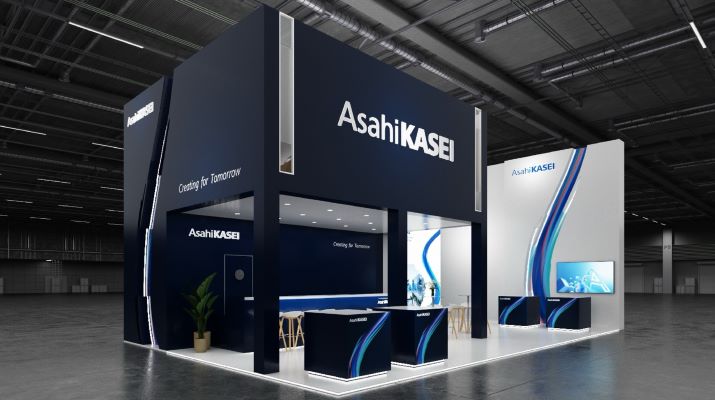Asahi Kasei will highlight PA and SEBS compounds reinforced with bio-based, biodegradable cellulose nanofiber

Japanese technology leader Asahi Kasei is set to unveil its latest innovations at K 2025, the world’s leading trade fair for plastics and rubber, taking place from October 8-15 in Düsseldorf, Germany. At Hall 8a, Booth E23, the company will present groundbreaking PFAS-free polyamides, cutting-edge recycling technology for continuous carbon fibers, and a range of advanced material solutions for automotive applications focused on light weighting, improved connectivity, and enhanced performance.
Asahi Kasei has pioneered a revolutionary recycling method that recovers continuous carbon fibers from CFRP (carbon fiber reinforced plastics) pressure vessels used in automobiles. By employing electrolyzed sulfuric acid, the process fully decomposes the resin matrix while maintaining the original strength and continuity of the fibers. Unlike traditional recycling methods that yield chopped fibers, this innovation enables the perpetual recycling of high-quality, cost-effective continuous carbon fibers. Visitors at K 2025 will see more than 200 meters of recycled continuous carbon fiber on display.
In addition, Asahi Kasei will highlight PA and SEBS compounds reinforced with bio-based, biodegradable cellulose nanofiber (CNF) derived from cotton linter. CNF-reinforced polyamides demonstrate reduced viscosity under agitation, making them ideal for 3D printing applications with high dimensional accuracy, smooth finishes, and strong mechanical properties. CNF-reinforced SEBS offers adjustable softness, minimal warpage and shrinkage, and excellent hydrolysis resistance, making it suitable for applications ranging from jigs and tooling to prosthetics and orthotic devices.
Responding to the growing demand for PFAS-free materials, Asahi Kasei will also introduce a new PFAS-free, low-friction LEONA polyamide grade in Europe. Internal testing confirms the material delivers friction properties comparable to fluororesins, making it ideal for sliding applications in automotive components, robotics, office automation, and sporting goods.
Addressing the automotive industry’s drive for lighter, more efficient parts, Asahi Kasei will showcase a variety of solutions for streamlined production and enhanced performance. The transparent polymer AZP offers near-zero birefringence at lightweight, overcoming conventional polymer limitations in polarizing light applications such as virtual and augmented reality devices, as well as automotive head-up displays (HUD), while maintaining excellent processability for large-scale injection molding.
In addition, the company’s SEBS material supports one-step core-back injection molding for automotive interior components, allowing skin and foam layers to bond chemically without adhesives. This simplifies production, reduces material usage, and improves recyclability. The modified polyphenylene ether (mPPE) particle foam SunForce is tailored for thin-walled, complex-shaped parts requiring tight tolerances, high heat stability, and UL94 V-0 flame retardancy, making it ideal for thermal management in electronic devices, Li-Ion battery trays, HVAC insulation, and FRP composite cores.
With the rise of radar applications in the automotive sector, Asahi Kasei also addresses the need to reduce weight, production costs, and material usage. Its mPPE XYRON material enables injection-molded resin antenna parts with proven wet-platability, eliminating traditional milling processes, lowering costs, and supporting scalable mass production for millimeter-wave radar applications.
At K 2025, Asahi Kasei will demonstrate how its innovative materials and technologies are shaping the future of sustainable, high-performance plastics, automotive solutions, and next-generation manufacturing.
Subscribe to our newsletter & stay updated.